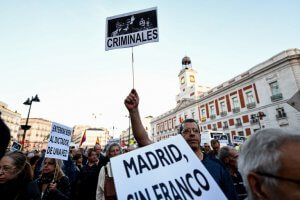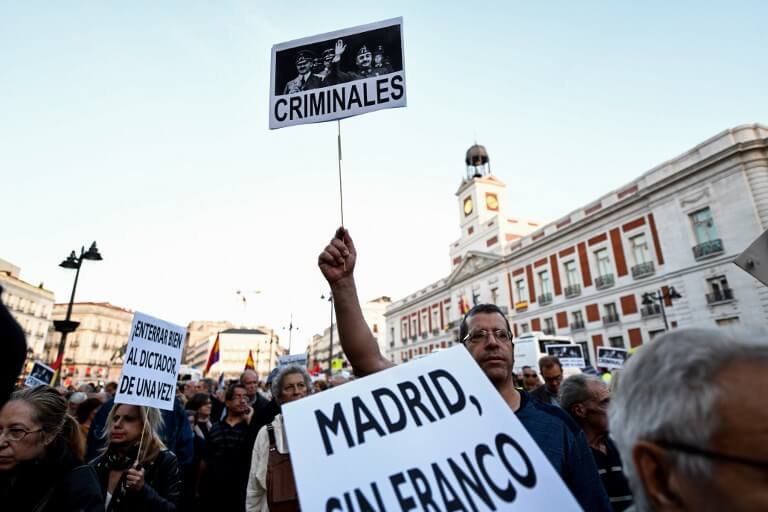Although Franco died over four decades ago, in 1975, the task of trying to manage the legacy of the dictator who ruled Spain for 40 years is proving to be a challenge.
In 2017 and 2018, the Spanish parliament voted to exhume Franco’s remains from the Valley of the Fallen, the site built to honour the victims of the Spanish Civil War (1936-1939), which has become a symbol of Franco’s dictatorship and a site of pilgrimage for Fascist sympathisers.
However, the attempts by Pedro Sánchez‘s socialist government to see the exhumation through have been blocked at every turn by Franco’s family and sympathisers.
ALSO READ: Franco Foundation to appeal dictator’s exhumation
The latest twist came on Monday, when the acting-Spanish government said it would be sending a formal protest to the Vatican over comments made by the papal nuncio in Madrid.
In an interview on Sunday, nuncio Renzo Fratini suggested the government ‘has resuscitated Franco’ by pushing its plans to have the dictator’s remains relocated.
ALSO READ: Spotlight: ‘When you attack Franco, you attack over half of Spain’
Acting deputy prime minister vice, Carmen Calvo, told Cadena Ser radio that the Vatican diplomat’s comments were ‘unfair and unacceptable’ and tantamount to ‘interference’ in Spanish affairs.

When the Socialists came to government in June 2018, one of the measures announced was its plan to relocate Franco’s remains to El Pardo cemetery, where his wife is laid to rest.
Yet, just days before the exhumation was to be carried out, Spain’s Supreme Court upheld the objections of the Franco family and ordered the operation be frozen.
ALSO READ: Spanish artist defaces Franco tomb
Franco’s family, with the support of the Francisco Franco Foundation, objected to the move, calling for the dictator to be laid to rest in Madrid’s La Almudena cathedral.
Although Franco’s daughter is buried in the cathedral, as a popular tourist site in the city, the government blocked the proposal, citing ‘clear risks for citizen safety’.
Yet, the real reason for the government’s objection to the cathedral may have more to do with concerns about establishing a site glorifying Francoism in the centre of Madrid.
ALSO READ: Sánchez: Franco mausoleum cannot be ‘place of reconciliation’
That is one of the problems with leaving the dictator’s remains in the Valley of the Fallen, which was theoretically built to honour the victims on both sides of the bloody conflict that divided Spain.
The monument just outside Madrid holds the remains of over 33,000 victims of both sides of the Civil War, and the government wants it to be a ‘place of memory and reconciliation’.
Which is why the Socialists want the remains removed, as far from being a victim, it was Franco’s rebellion that started the war that his forces won, and establishing a dictatorship.
ALSO READ: Fascist protest against moving Franco’s remains
Despite the Supreme Court freezing the dictator’s exhumation, the acting government is confident that the judges will eventually overrule the family’s objections.
‘The government is convinced the Supreme Court will throw out this appeal, as it has done with all the appeals lodged by the Franco family,’ it said in a statement after the suspension.
While Franco’s final resting place remains up in the air, one of the most ironic things about the affair is that the dictator himself never wanted to be buried in the Valley of the Fallen.
ALSO READ: Franco exhumation creates political row


